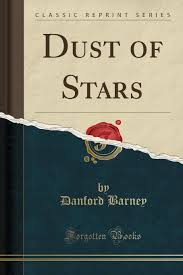 |
| Members of the Yale Unit, 1918 |
In a reviw of Danford’s collection “Chords from Albireo”, published in “Poetry” Magazine, September 1920 (p. 341), John Hall Wheelock said: “Few living poets have possessed to the same degree as Mr. Barney, with equal master)' of verbal music, the austere and inexorable spirituality which is so passionately revealed in his moments of genuine articulacy.”
From 1922 until 1930 Barney maintained a photographic studio in New York, where he made a series of portraits of authors and artists. He married twice - first to Gertrude Wells, with whom he had three daughters - and later to Dorothy Bartlett.
An untitled poem by Danford Barney published in “The Graphic”, Saturday, 16th November 1918
We marched a down the gold-paved way;
We held our state in royal halls
As though the earth’s empiric sway
Were bounded by these naked walls.
Till ever in your wise concern
My weakness served your kinder will
That watched the fevered taper burn,
And slaved to keep it burning still.
You smiled by lamplight at the trace
Of child surrender on the deep
Serenity of my wan face
The immortality of sleep.
And once we hearkened to the rain
Throughout the long companioned night
Till dawn crept to the window-pane
And touched the walls with timid light.
‘Tis strange the lot that haunts me still;
That I should fail my part despite
The power to guide the flesh by will;
That you should stand my watch by night.
Even hours of forfeit shall reward
Who, by their chance, must watch and wait;
So first within this prisoned word
I touched your hand upon the gate.
If we hereafter may not meet
You will be strong nor grieve too much,
Knowing each faithful hand I greet
Stirs with the spirit of your touch.
Just as in petals of faded flowers,
A beauty haunts there without end;
As perfuire through the wasting hours
The memory lingers of a friend.
In other land, perhaps you’ll tell
Some dearer friend whose faith you try,
“There’s fragrence in old flowers”, ah well
We played at comrades you and I.
Photograph: Members of the Yale unit in 1918
Sources: “Poetry” September 1920 and
https://snaccooperative.org/ark:/99166/w6w698tf
https://repository.library.brown.edu/studio/item/bdr:463850/PDF/https://news.yale.edu/2017/04/05/yale-goes-war-history-yale-unit-mobile-hospital-no-39
“War and Verse, Poetry and Prose of World War One: As seen in the Wartime Press” Edited by Stephen Robert Kuta (Re-invention UK, Chelmsford, 2018)










